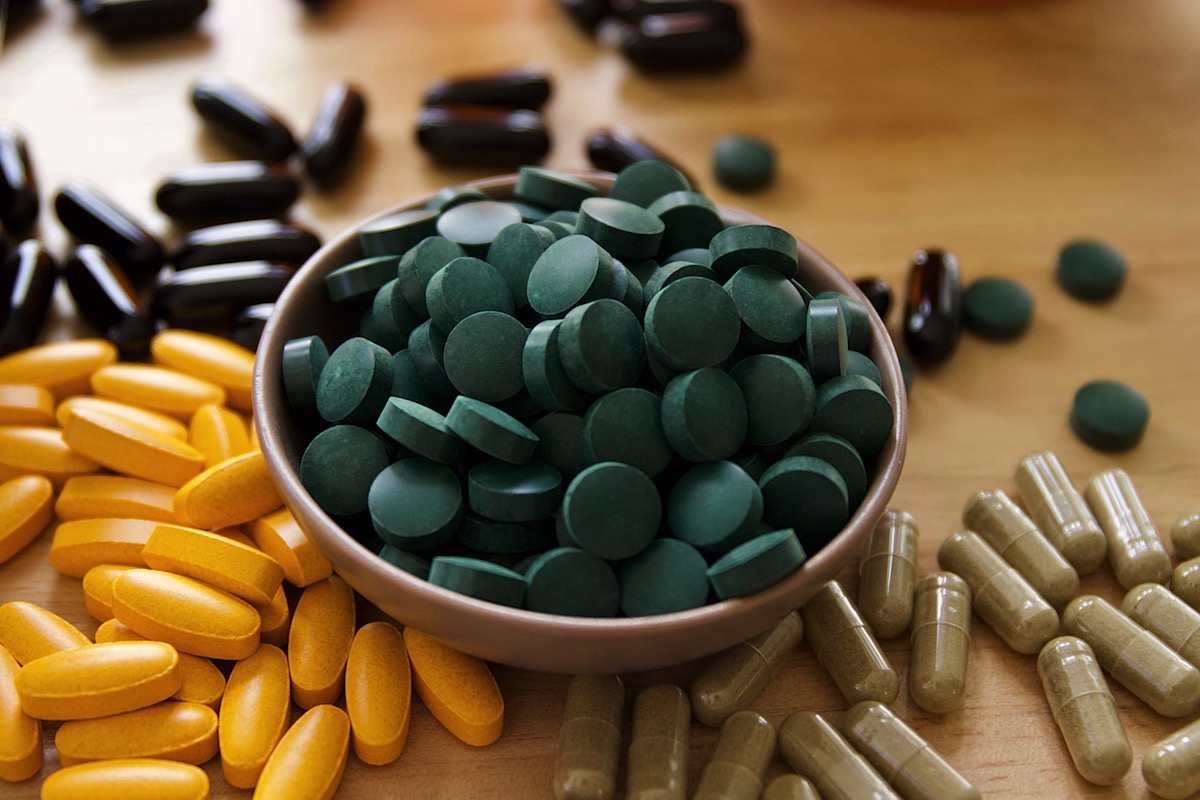So if there's a combination of an herb like silymarin and a liver toxic drug you're saying the doctor does not have the right to request this for his patient and have it filled at the pharmacy? Or CoQ10 and lipitor (Coq10 is reduced when taking statins) I would disagree with you immensely. We need to constant learn what combinations may be more effective or safer not all of it can be done through large clinical studies. Just like many drugs are unlabeled prescribed for non FDA approved uses widely by doctors because newer studies have suggestive effectiveness and most importantly those patients have failed at other treatments.
Not allowing doctors to prescribe what they believe is best for the patient only hinders discovery and options for those in most need of medical help of what is effective for them.
I'm going to try and go point by point here so I don't miss anything:
So if there's a combination of an herb like silymarin and a liver toxic drug you're saying the doctor does not have the right to request this for his patient and have it filled at the pharmacy? Or CoQ10 and lipitor (Coq10 is reduced when taking statins) I would disagree with you immensely.
Unfortunately (and I mean that seriously), yes. Doctors are not pharmacists. Doctors are generally incredibly intelligent people, but they're not trained in pharmacology...that's why there's a completely separate school for pharmacologists. Since the 1990's, how many doctor's have you heard of that have spoken publicly about the dangers of "creatine"?
Doctors are trained how to diagnose ailments/diseases, and recommend currently accepted best practice treatment to help correct/fix that ailment. They're not trained on how to mix specific compounds for "synergy".
I work in the pharmaceutical industry now (it'll be a year in about 8 week) and I see what goes into the making of a drug. It's very different than I originally thought I understood.
A doctor cannot responsibly order the combination of an herbal product and a drug to be combined until he/she has run the necessary VERY large sample size safety trials...same as anyone else. They CAN however suggest to their patients that they can use a dietary supplement like silymarin or CoQ10 in conjunction with the prescribed product, but even then it's not a very smart idea. This is why every dietary supplement tells users to check with their physician before starting use. Unless a product has an established monograph there is next to no way to determine exactly how it will react to being combined with a prescribed drug. It can get very dangerous.
Think about grapefruit/grapefruit extract and MAOI's. You can literally kill someone by combining the two.
We need to constant learn what combinations may be more effective or safer not all of it can be done through large clinical studies.
That's exactly what I've been saying. I am as big of a fan of natural/herbal remedies as anyone out there, but we lack science on 99.9999% of them. We need more studies, in MUCH larger sample sizes, and we need to conduct these studies similarly to how we test drugs. The problem here is that the studies are EXPENSIVE. For example, the company I work for wants to do a study on an upcoming product of ours for nothing but safety profile, and it's a one ingredient product. The expected study expense is $2,000,000 and its not a robust enough of a study to be able to wash your hands after and say "ok, we're done here!". Subsequent studies will be required. At the end of the day, I expect them to spend ~$10,000,000 before all is said and done. How many supplement companies do you know of that can afford that?
Just like many drugs are unlabeled prescribed for non FDA approved uses widely by doctors because newer studies have suggestive effectiveness and most importantly those patients have failed at other treatments.
Not allowing doctors to prescribe what they believe is best for the patient only hinders discovery and options for those in most need of medical help of what is effective for them.
Using a drug for non-approved uses is a touchy subject for many doctors. It's risky, but at times (like you mentioned) it can be necessary. Those doctors however are able to access an insane amount of data showing average risk factors the drug brings with it which can help allow them to make an informed decision. They can't however find the same amounts of safety data for herbal extracts, and DEFINITELY cannot find that type of safety data for drugs combined with herbal extracts.
If a doctor feels THAT strongly about it however, all he/she has to do is say "head to amazon and grab this product" and the patient can do so. Hell, the doctor can even have bottles of whatever that dietary supplement is in his/her office and sell it to the patient for profit!

 theherbalacademy.com
theherbalacademy.com

 theherbalacademy.com
theherbalacademy.com



